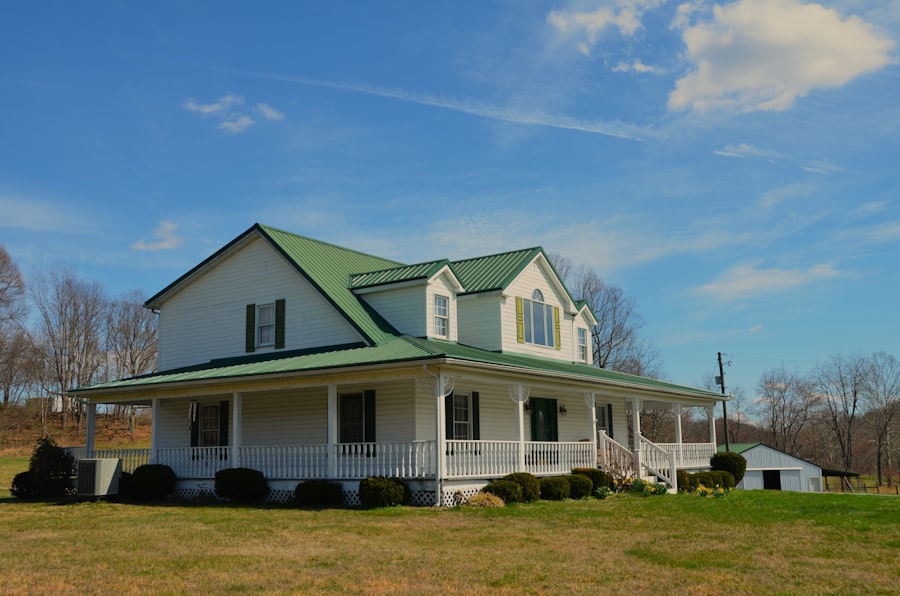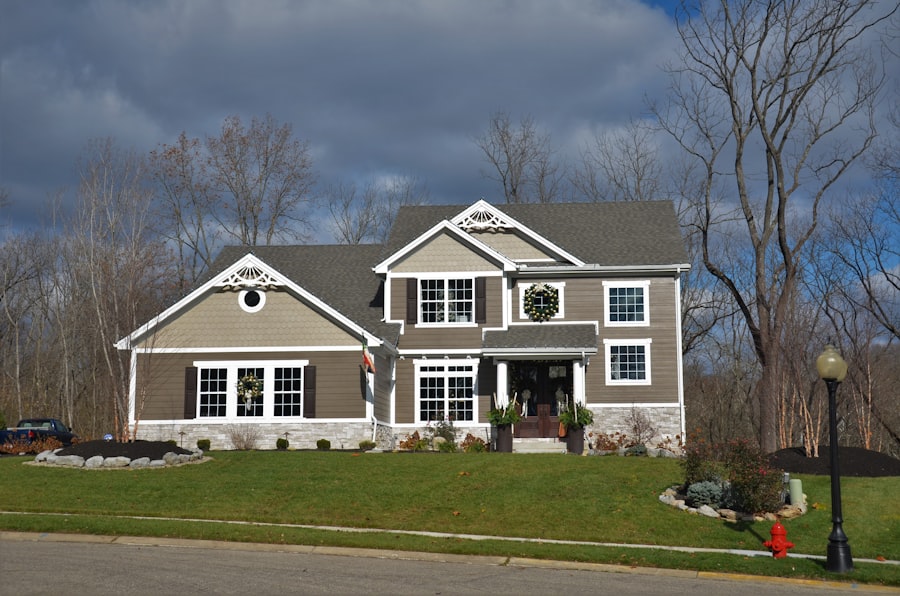Purchasing a quality used manufactured home offers numerous advantages that can significantly enhance the living experience while also providing financial benefits. One of the most compelling reasons to consider a used manufactured home is affordability. Compared to traditional site-built homes, manufactured homes typically come at a lower price point, making them an attractive option for first-time buyers or those looking to downsize.
The depreciation rate of manufactured homes is often slower than that of conventional homes, meaning that buyers can find properties that retain their value over time. This financial stability can be particularly appealing in fluctuating real estate markets. In addition to cost savings, quality used manufactured homes often come with the added benefit of being located in established communities.
Many manufactured home parks offer amenities such as swimming pools, clubhouses, and recreational facilities, fostering a sense of community among residents. This can be especially advantageous for families or retirees seeking a vibrant social environment. Furthermore, purchasing a used manufactured home allows buyers to bypass the lengthy construction process associated with new builds, enabling them to move in quickly and start enjoying their new living space without the wait.
Key Takeaways
- Purchasing a quality used manufactured home can save money and provide a comfortable living space.
- When buying a used manufactured home, look for structural integrity, updated appliances, and a well-maintained interior.
- Ensure the quality of a used manufactured home by hiring a professional inspector and requesting maintenance records.
- Quality used manufactured homes can be found for sale through reputable dealers, online marketplaces, and real estate agents.
- Proper inspection and maintenance are crucial for the longevity and safety of a used manufactured home.
What to Look for When Buying a Used Manufactured Home
When embarking on the journey of purchasing a used manufactured home, it is essential to know what to look for to ensure a wise investment. First and foremost, buyers should pay close attention to the home’s age and condition. Older models may have outdated features or materials that could require costly upgrades or repairs.
It is advisable to seek homes built after 1976, as this is when the U.S. Department of Housing and Urban Development (HUD) implemented stricter regulations regarding safety and construction standards. Homes built before this date may not meet current safety codes and could pose risks to occupants.
Another critical factor to consider is the layout and design of the home. Buyers should assess whether the floor plan meets their needs and lifestyle preferences. For instance, families may prioritize open-concept living spaces, while individuals might prefer more defined areas for privacy.
Additionally, it is important to evaluate the quality of appliances and fixtures within the home. High-quality appliances can enhance energy efficiency and reduce utility costs over time, making them a worthwhile investment. Buyers should also consider the potential for customization or renovation, as this can add personal touches and increase the home’s value.
How to Ensure the Quality of a Used Manufactured Home

Ensuring the quality of a used manufactured home requires thorough research and due diligence on the part of the buyer. One of the most effective ways to assess quality is by obtaining a comprehensive inspection from a qualified professional. A thorough inspection will cover critical areas such as the foundation, plumbing, electrical systems, and roofing.
Inspectors can identify potential issues that may not be immediately visible, allowing buyers to make informed decisions about their purchase. It is advisable to accompany the inspector during the evaluation to gain insights into any necessary repairs or maintenance. In addition to professional inspections, buyers should also seek documentation related to the home’s history and maintenance records.
This information can provide valuable insights into how well the home has been cared for over the years. A well-documented maintenance history can indicate that previous owners took pride in their property and addressed issues promptly. Furthermore, buyers should inquire about any warranties or guarantees that may still be in effect for appliances or structural components.
These warranties can offer peace of mind and financial protection against unexpected repairs.
Where to Find Quality Used Manufactured Homes for Sale
| Location | Quality | Price Range |
|---|---|---|
| Manufactured Home Dealers | Varies | 10,000 – 100,000 |
| Online Marketplaces | Varies | 5,000 – 80,000 |
| Classified Ads | Varies | 5,000 – 70,000 |
Finding quality used manufactured homes for sale requires a strategic approach and an understanding of where to look. One of the most common avenues is through real estate listings, both online and in local newspapers. Websites dedicated to real estate often feature filters specifically for manufactured homes, allowing buyers to narrow down their search based on location, price range, and other preferences.
Additionally, local real estate agents who specialize in manufactured homes can provide valuable insights and access to listings that may not be widely advertised. Another effective method for locating quality used manufactured homes is through word-of-mouth referrals within communities or social networks. Friends, family members, or colleagues may have leads on available properties or know of individuals looking to sell their homes.
Additionally, visiting manufactured home parks directly can yield opportunities for buyers to discover homes that are not listed on traditional real estate platforms. Many parks have bulletin boards or community newsletters where residents post information about homes for sale, providing an excellent resource for prospective buyers.
The Importance of Proper Inspection and Maintenance for Used Manufactured Homes
Proper inspection and maintenance are crucial components in ensuring the longevity and safety of used manufactured homes. Regular inspections can help identify potential issues before they escalate into costly repairs. For instance, routine checks on plumbing systems can prevent leaks that may lead to water damage or mold growth.
Similarly, inspecting electrical systems can help identify faulty wiring or outdated components that could pose fire hazards. By staying proactive with inspections, homeowners can address minor issues promptly and maintain the overall integrity of their property. Maintenance is equally important in preserving the value of a used manufactured home.
Simple tasks such as cleaning gutters, checking for signs of wear on roofing materials, and ensuring proper ventilation can significantly extend the life of various components within the home. Additionally, maintaining outdoor spaces—such as landscaping and driveways—can enhance curb appeal and contribute to a positive living environment. Homeowners should also familiarize themselves with any specific maintenance requirements unique to manufactured homes, such as foundation upkeep or skirting inspections, to ensure their investment remains in optimal condition.
Financing Options for Purchasing a Used Manufactured Home

Financing a used manufactured home presents unique challenges compared to traditional home purchases; however, there are several viable options available for prospective buyers. One common route is obtaining a personal loan or a chattel loan specifically designed for manufactured homes. Chattel loans are secured by the home itself rather than land ownership, making them suitable for buyers who may not own the land on which their home will sit.
These loans typically have shorter terms and higher interest rates than traditional mortgages but can be an accessible option for many buyers. Another financing avenue is through government-backed loans such as those offered by the Federal Housing Administration (FHA) or the U.S. Department of Agriculture (USDA).
FHA loans are particularly beneficial for first-time homebuyers as they require lower down payments and have more lenient credit score requirements. USDA loans are designed for rural properties and can provide zero down payment options for eligible buyers in designated areas. Understanding these financing options allows buyers to make informed decisions about how best to fund their purchase while considering their financial situation.
Tips for Negotiating the Price of a Used Manufactured Home
Negotiating the price of a used manufactured home requires preparation and strategy to achieve favorable terms. One effective approach is conducting thorough research on comparable sales in the area before entering negotiations. By understanding market trends and pricing for similar homes, buyers can establish a reasonable offer based on factual data rather than emotional impulses.
This knowledge empowers buyers during negotiations and provides leverage when discussing price adjustments with sellers. Additionally, it is essential to remain flexible during negotiations while clearly communicating one’s budget constraints and priorities. Buyers should be prepared to make concessions on non-essential features if it means securing a better overall deal on the home itself.
For instance, if a seller is unwilling to lower the price significantly but offers to include appliances or cover closing costs, this could still represent substantial savings for the buyer. Building rapport with the seller can also facilitate smoother negotiations; expressing genuine interest in the home while maintaining professionalism can create a positive atmosphere conducive to reaching an agreement.
The Future of the Used Manufactured Home Market
The future of the used manufactured home market appears promising as societal trends shift toward affordable housing solutions amid rising real estate prices. As more individuals seek cost-effective living arrangements without sacrificing quality or comfort, manufactured homes are gaining recognition as viable alternatives to traditional housing options. This growing acceptance is further fueled by advancements in manufacturing technology that enhance energy efficiency and design aesthetics, making these homes increasingly appealing to a broader demographic.
Moreover, as urban areas become more congested and housing shortages persist, manufactured homes offer an innovative solution that addresses both affordability and accessibility challenges. Communities are beginning to embrace manufactured housing as part of their development plans, integrating these homes into existing neighborhoods while providing essential amenities and services nearby. As public perception continues to evolve positively regarding manufactured homes, it is likely that demand will increase, leading to further investment in this sector and ultimately contributing to its growth in the coming years.

